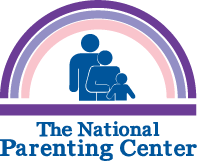
It’s true that abstinence from sex is an excellent way of preventing infection with the AIDS virus.
But among teenagers who are having sex and who will not consider the abstinence option, knowing about safe sex practices and putting these to use every time, is essential.
The use of condoms to prevent the exchange of bodily fluids during intercourse or other sexual activities is the cornerstone of reducing the risk of AIDS transmission.
However, teens need to understand that not all condoms are equally effective in preventing the transmission of AIDS.
Only latex (as opposed to more porous animal tissue) condoms should be used in order to prevent very small viral particles of the AIDS virus.
Teens also need to be educated about the fact that, in order to be effective, condoms need to be fresh. If a boy carries a condom in his wallet (or a girl carries one in her purse) in order to be prepared at all times, it’s essential to know that if this condom is not used within three of four weeks, it should be discarded and replaced with a new one. Over time and with exposure to heat, condoms will dry and, possibly crack–and offer little, if any, protection against the AIDS virus.
Many young people look up to Magic Johnson and feel that, if this legendary sports hero could be infected, then it could happen to anyone, Others contend that Magic’s sexual promiscuity was far beyond the fantasies, let alone the reality, of the average person and therefore discount the value of his message.
Certainly, sexual promiscuity can exact a terrible price–as Magic Johnson shows us all. But his message–to be aware of the risk of AIDS to each of us and to take care of ourselves by abstinence or, at the very least, by safe sex practices–cannot be ignored.
Dr. Wibbelsman, M.D., is an award-winning author and former “Dear Doctor” columnist for Teen magazine. Chair of Adolescent Medicine for the Permanente Medical Group, Northern California, he is chief of the Teen-Age Clinic at Kaiser Permanente Medical Center in San Francisco, and an associate professor of pediatrics at the University of California, San Francisco Medical School. Dr. Wibbelsman is the news anchor for a Bay Area television series, “Medicine in the Nineties”.


